There can be your advertisement
300x150
Light in Interior: The Magic of Mood in Every Room
We explain how properly chosen lighting can transform the atmosphere in a room
Dark like a cave, or bright like an operating room? Incorrect lighting can ruin even the most thought-out interior. Let's uncover the secrets of proper light organization and turn your home into a cozy space.
Key points:
- Multilevel lighting is the foundation of a comfortable space;
- Warm light for rest, cool light for work;
- LED bulbs save energy and money;
- Smart lighting is a trend that will last;
- Light affects not only the interior but also our well-being.
Elmira Vagapova, an interior designer, says: "Lighting in interior design plays a big role in everyone's life. With properly arranged lighting, you can create different atmospheres at home, and for that, you need to plan various lighting scenarios. The play of light and shadow magically transforms space."
Let's start by looking at the types of lighting: general, local, and accent.
When working on your interior, plan each room where general visibility and bright light are needed.
- Lighting fixtures are evenly distributed at the top of the room — this is general lighting.
- Along with general lighting, local light complements the interior if you need to highlight a workspace or create a cozy atmosphere. For relaxation areas, add wall sconces, floor lamps, and wall lights.
- Accent lighting in the interior highlights significant details of space decoration: relief, niches, shelves and bookcases, paintings, mirrors.
Living Room: The Center of Attraction
In the living room, we rest, communicate, and watch movies. Here, universal lighting is needed.
What to Use:
- A central chandelier for general lighting;
- Wall sconces or table lamps to create cozy zones;
- Spotlights to illuminate paintings or bookshelves.
Pro Tip: Use dimmers. They allow you to adjust brightness and create the right mood.
Elmira says: "The living room, dining kitchen — this is a space for rest, watching movies, and socializing. What to use:
- A central chandelier for general lighting;
- Suspended lights perfectly divide the space. Place them above the dining table or island, or highlight seating areas and coffee tables to create functional zones within one space;
- Spotlights, point lighting for specific areas.
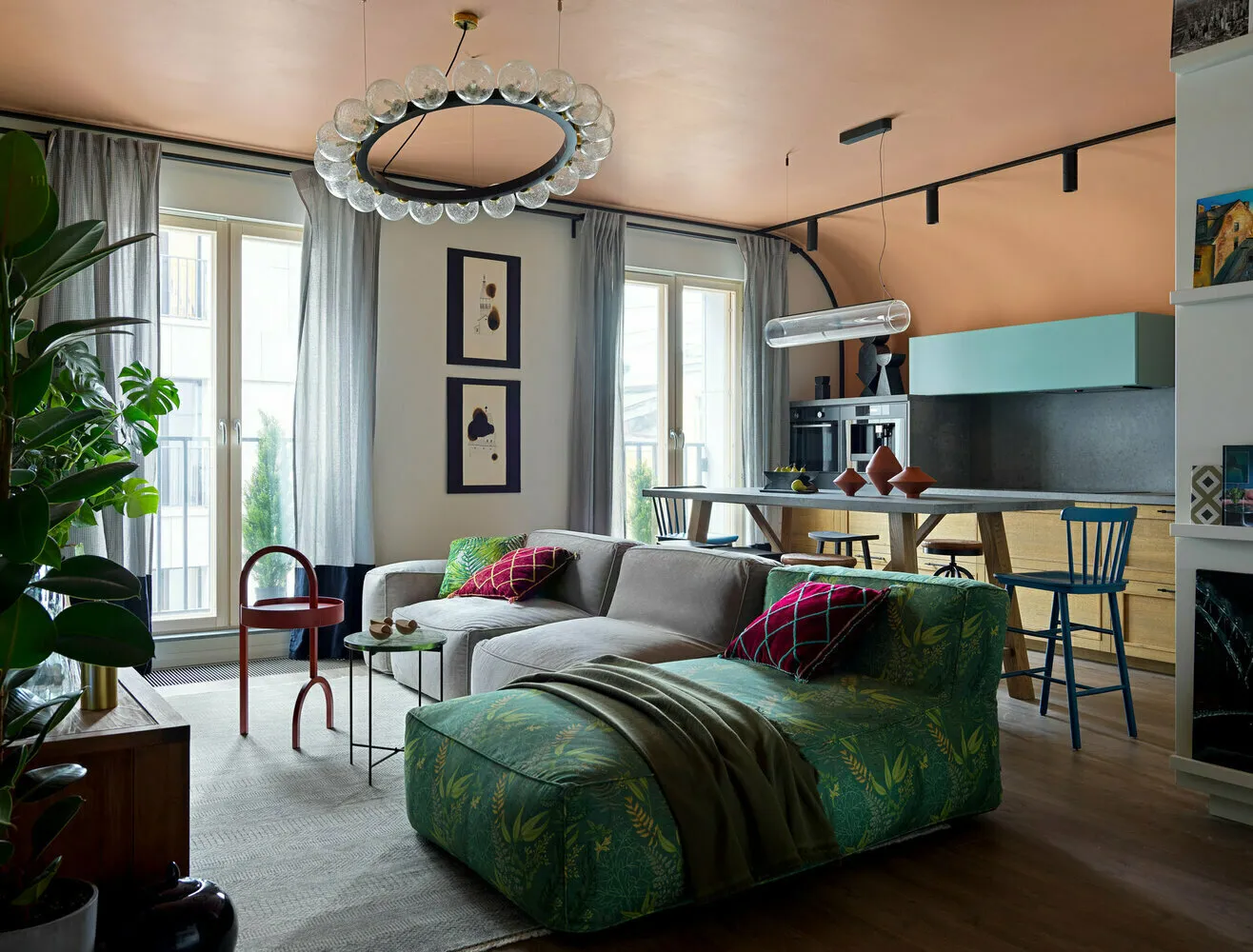
Design: Maks Zhukov and Viktor Shefan
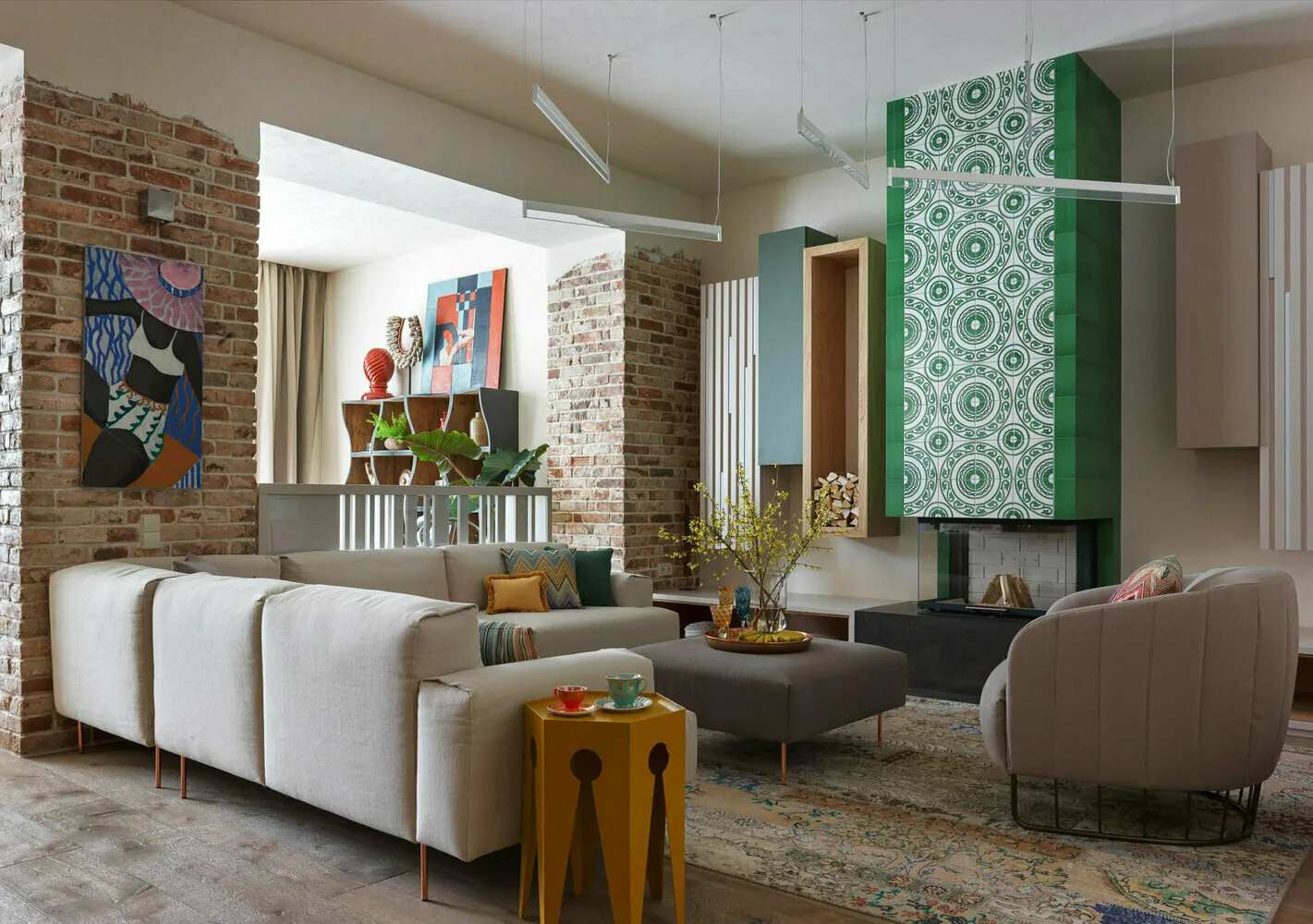
Design: Daria Vasilyova and the Art Group Team \"Classic remains in trend: textile and glass shades, calm and restrained tones, geometry in details.\"
Bedroom: Kingdom of Calm
Light here should soothe and set the mood for rest.
The Rule of Three Sources:
- Soft overhead light (e.g., a chandelier with a fabric shade);
- Bedside wall sconces or table lamps;
- Decorative lighting (string lights, LED strips).
Important: Choose lamps with warm light (2700-3000 K). They don't interfere with melatonin production and promote healthy sleep.
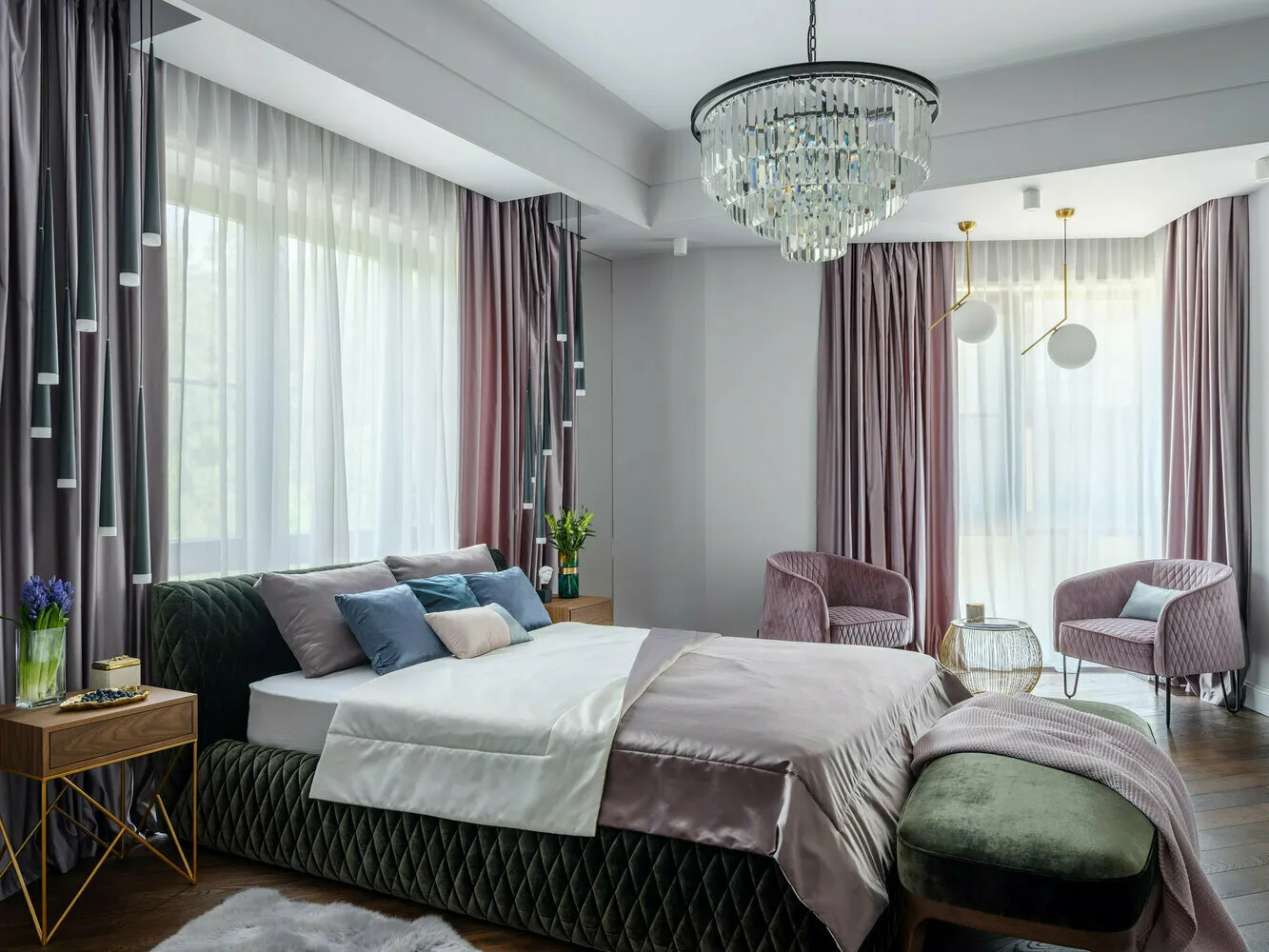
Elmira tells: "Lighting fixtures in the Art Deco style will look interesting in an interior. They can be multi-tiered, ornate in shape, with imitations of minerals, feathers, and noble metals like bronze or brass."
Kitchen: Functionality First
Lighting in the kitchen should be bright but not dazzling.
Lighting Layout:
- General light (ceiling lights);
- Work zone (under-cabinet lighting);
- Dining area (pendant light over the table).
Elmira's Tip: "On the kitchen, prefer moisture-resistant lights with high color rendering index (CRI > 90). Plan various lighting scenarios. The pendant light in the center has some drawbacks when cooking, as you stand with your back to the light source."
Add adjustable spotlights on the ceiling or recessed lights for additional illumination. When planning lighting in the kitchen, it's important to ensure that lights can be turned on separately, which is convenient and practical. This will allow not only enough light sources but also save electricity."
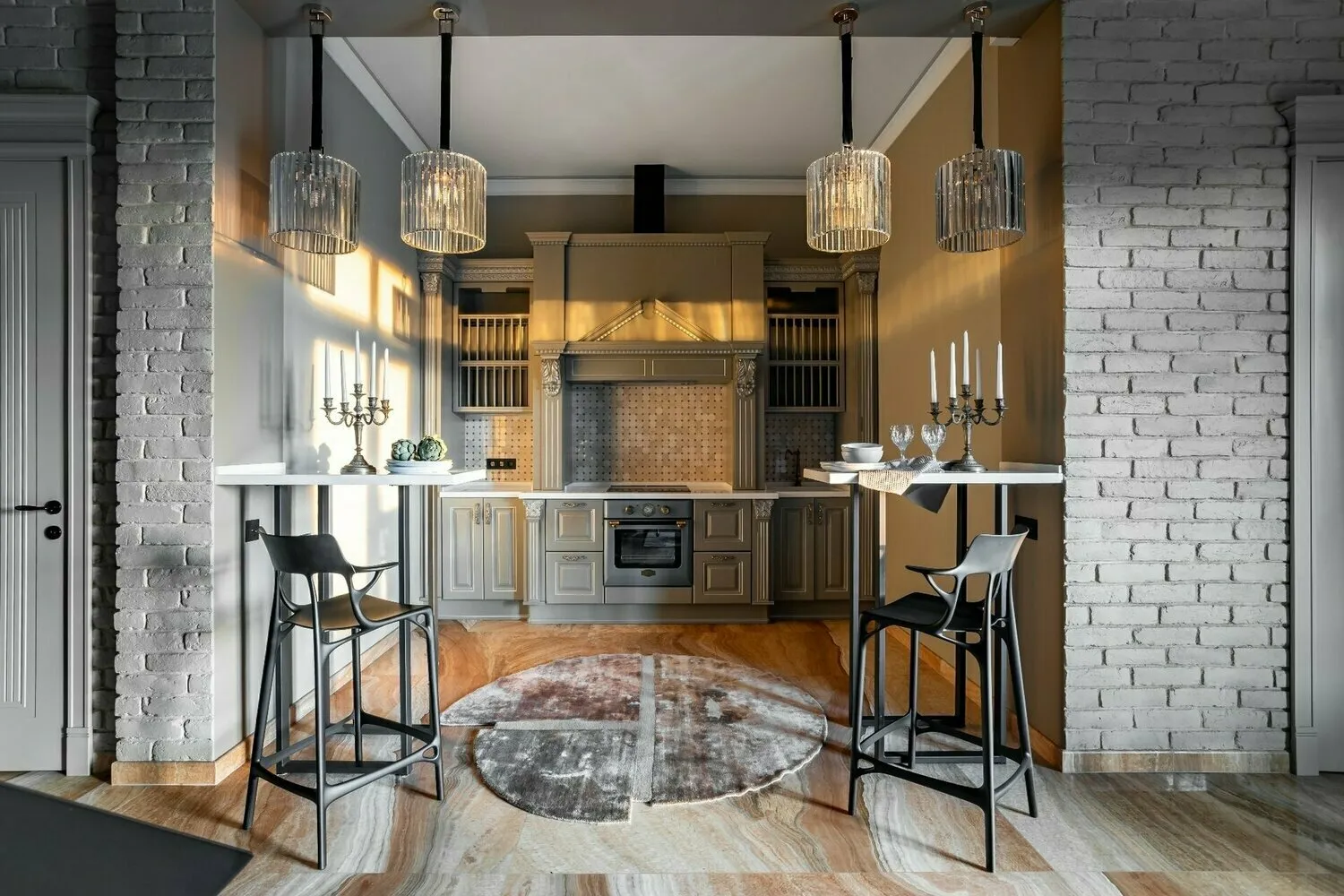
Design: Saya Mikhailova
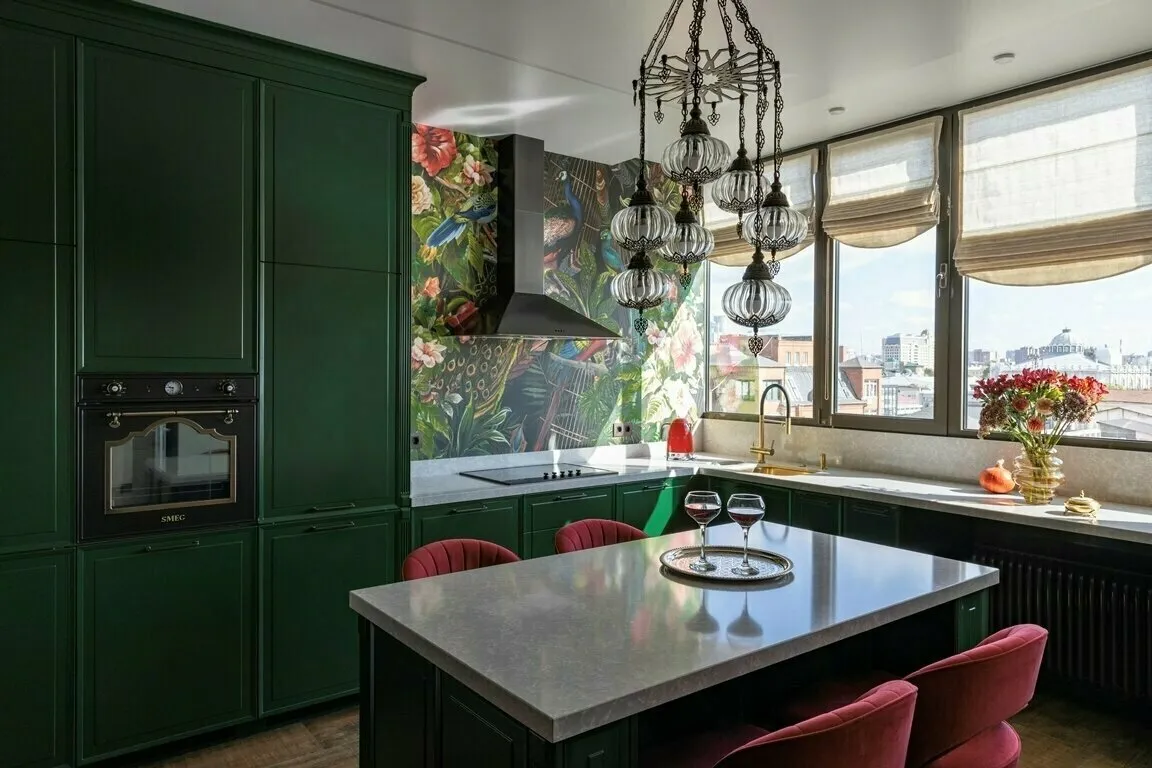
Design: Tatiana Tuvmann \"Ethno Style — Natural Materials, Ivory, Rattan, Wood, Eastern Motifs. These Are Reinterpreted Lighting Fixtures in a New Way.\"
Bathroom: Light Without Shadows
In the bathroom, it's important to avoid shadows on the face when applying makeup or shaving.
The Ideal Solution: Lights on both sides of the mirror + overhead light
Caveat: Don't forget about IP rating. For humid rooms, choose fixtures with IP44 and higher.
Elmira says: "The bathroom is just as much a part of the apartment as the bedroom and kitchen, and to make the interior not only functional but harmonious, instead of point lighting, you can install a chandelier, which will add charm and sophistication to your bathroom."
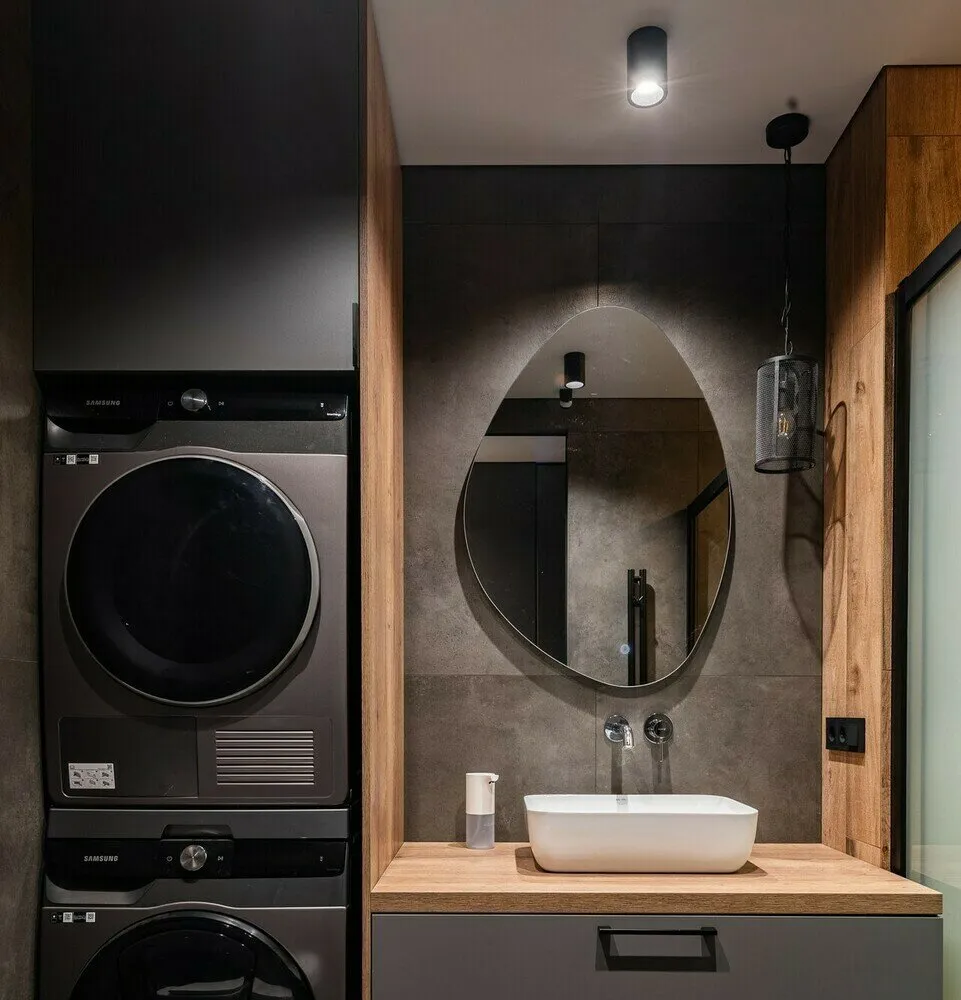
Design: Brainstorm Buro
Office: Focus and Productivity
Here, bright but not eye-straining light is needed.
Lighting Components:
- A ceiling light with cool light (4000-5000 K);
- A desk lamp for the workspace;
- Additional light source for reading.
Trick: Use lights with adjustable color temperature. Daytime — cool light for alertness, evening — warm for relaxation.
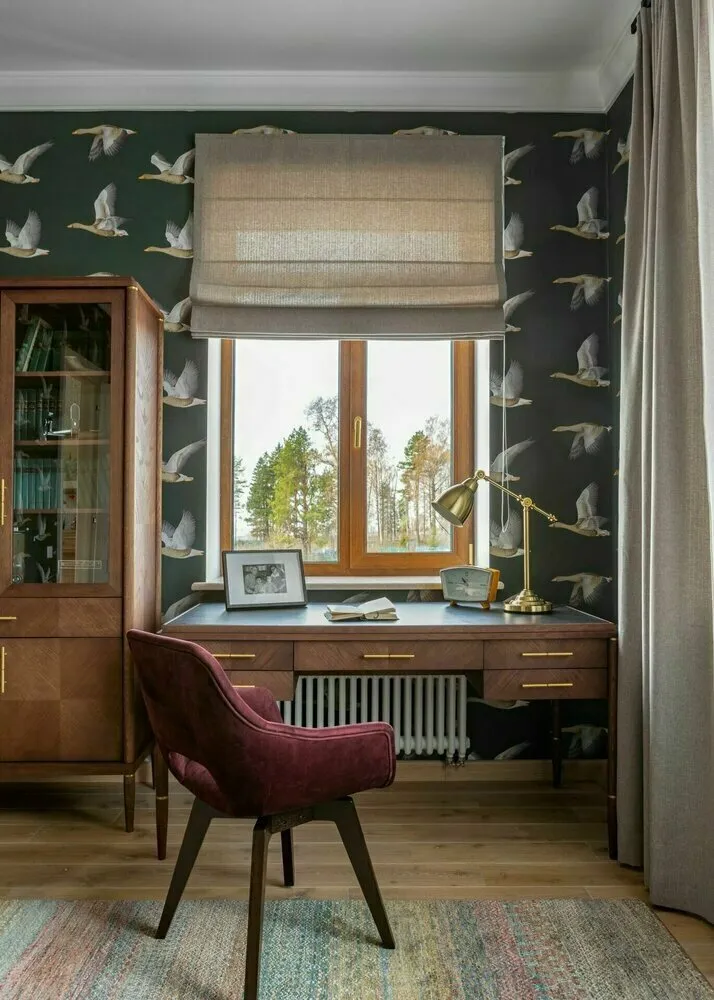
Design: Svetlana Olenburg
Hallway: First Impression
Often forgotten, but for good reason. This is the first thing guests see.
Ideas:
- Recessed ceiling lights;
- Wall sconces to visually expand the space;
- Lighting for wardrobes or mirrors.
Pro Tip: Use motion sensors. This is convenient and saves electricity.
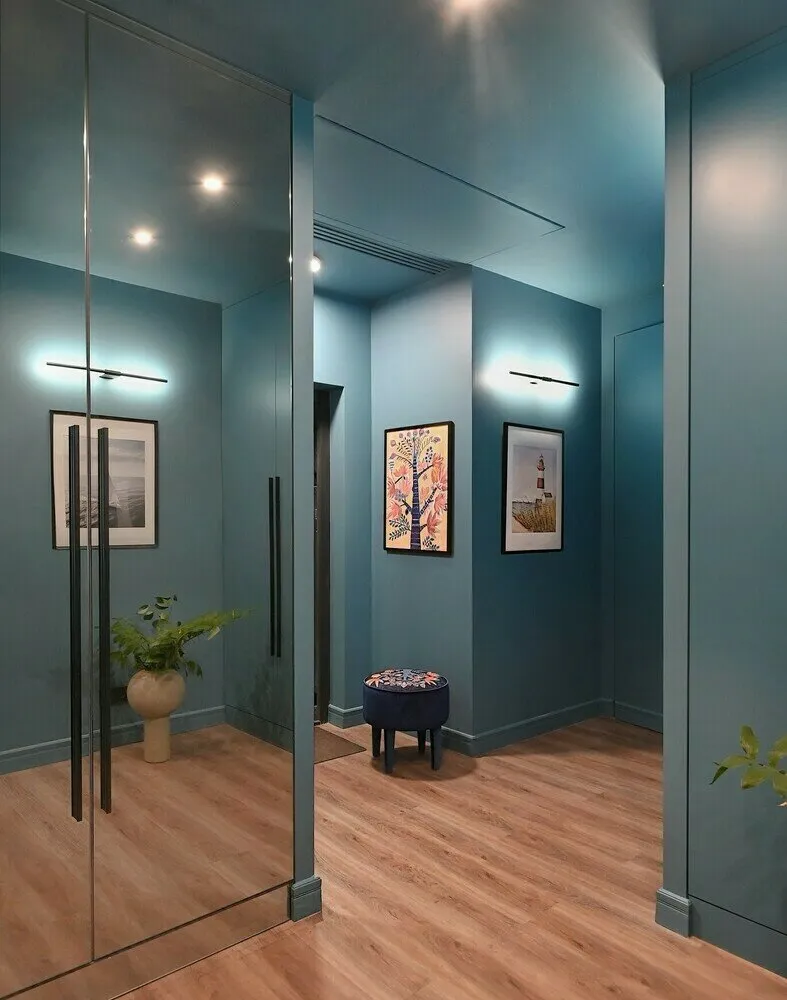
Design: Anna Zhizhaykina
Smart Lighting: The Future Is Here
Smart home systems allow you to control lighting via smartphone or voice.
Benefits:
- Creating lighting scenarios with one tap;
- Simulating presence when you're on vacation;
- Energy savings.
Important: When choosing a system, ensure it's compatible with your devices.
Light and Health: An Unseen Connection
Proper lighting affects not only the interior but also our well-being.
Facts:
- Blue light in the evening disrupts circadian rhythms;
- Lack of natural light can cause depression;
- Flickering lights lead to eye strain and headaches.
Solution: Use lamps with high flicker frequency (over 100 Hz) and adjustable color temperature.
Conclusion: Is Lighting Simple?
Organizing lighting might seem like a complex task, but it's not. The key is to remember the three levels of light (general, accent, decorative) and choose lighting for specific tasks in each room.
Don't be afraid to experiment. Light is a powerful tool for creating atmospheres. Play with it, and you'll be amazed at how your home can transform.
Remember: proper lighting is not luxury, but necessity. It affects our mood, health, and even productivity. Spend time organizing lighting, and your home will become more than just a place to live — it will be a true source of energy and comfort.
Cover Design: Konstantin Kolesov Project
More articles:
 Mediterranean Diet: Secret of Longevity or Simply Delicious Food?
Mediterranean Diet: Secret of Longevity or Simply Delicious Food?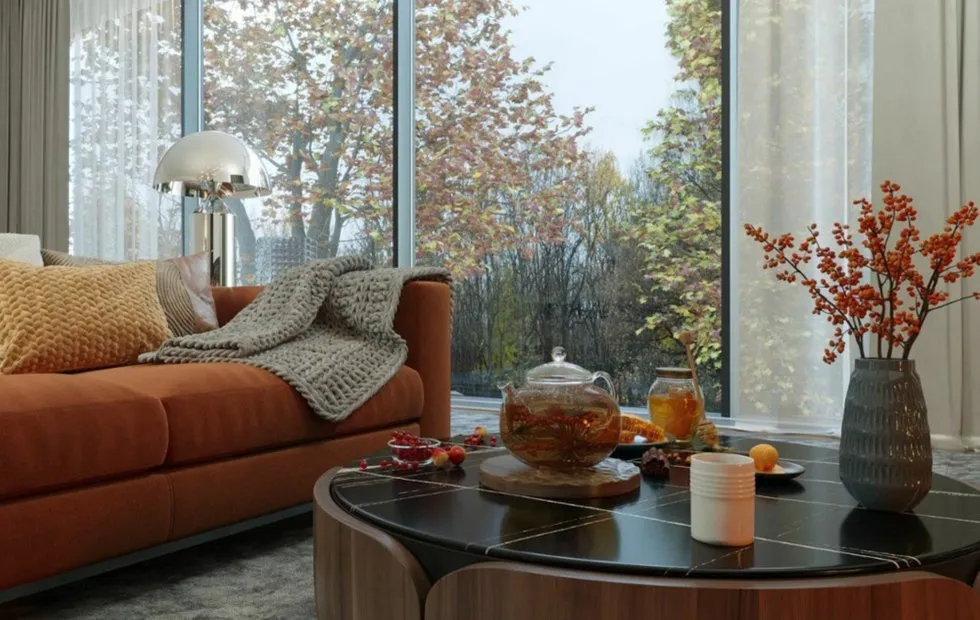 Autumn Blues: How to Turn Gray Days into Cozy Season
Autumn Blues: How to Turn Gray Days into Cozy Season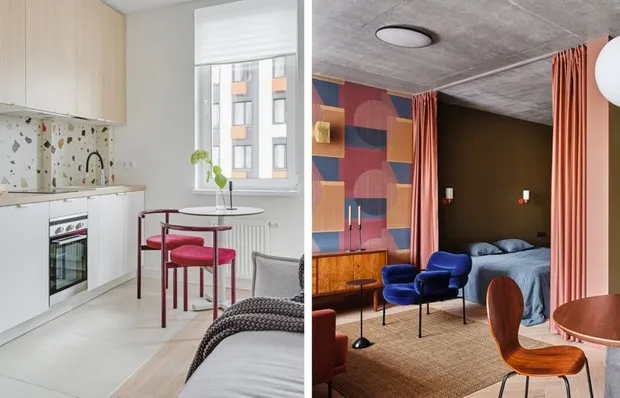 Open Spaces and No Wardrobes: 7 Cool Ways to Zone a Room
Open Spaces and No Wardrobes: 7 Cool Ways to Zone a Room Incredible Housing Projects: From Soviet 'People's Houses' to Chinese Mega-Complexes
Incredible Housing Projects: From Soviet 'People's Houses' to Chinese Mega-Complexes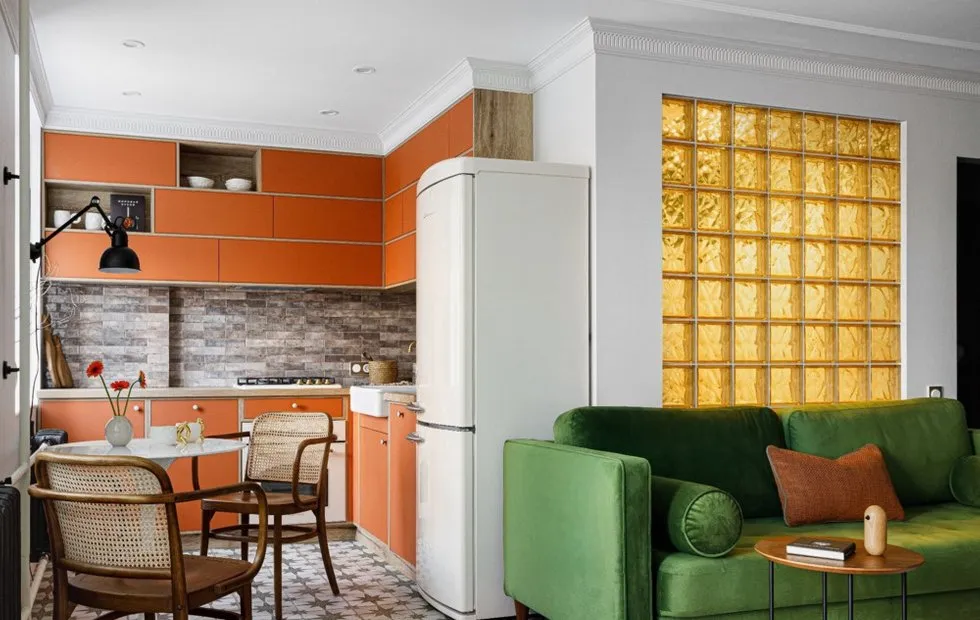 Ceilings That Press Down: How to Visually Increase Height in a Khrushchyovka
Ceilings That Press Down: How to Visually Increase Height in a Khrushchyovka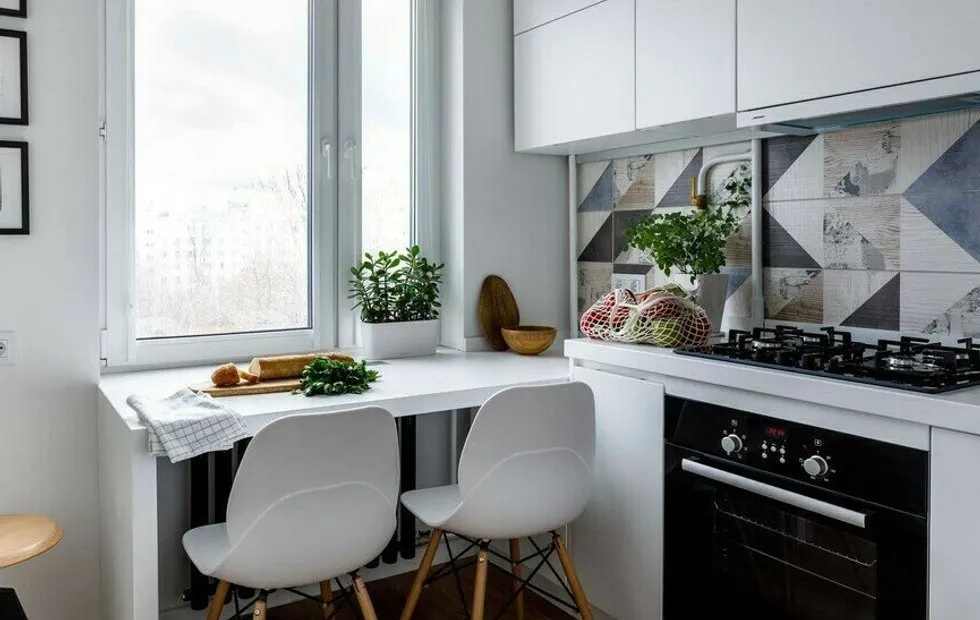 Kitchen 2.0: How 4 Square Meters Became the Center of the Universe
Kitchen 2.0: How 4 Square Meters Became the Center of the Universe Skin Care After 30: Secrets That Will Surprise You
Skin Care After 30: Secrets That Will Surprise You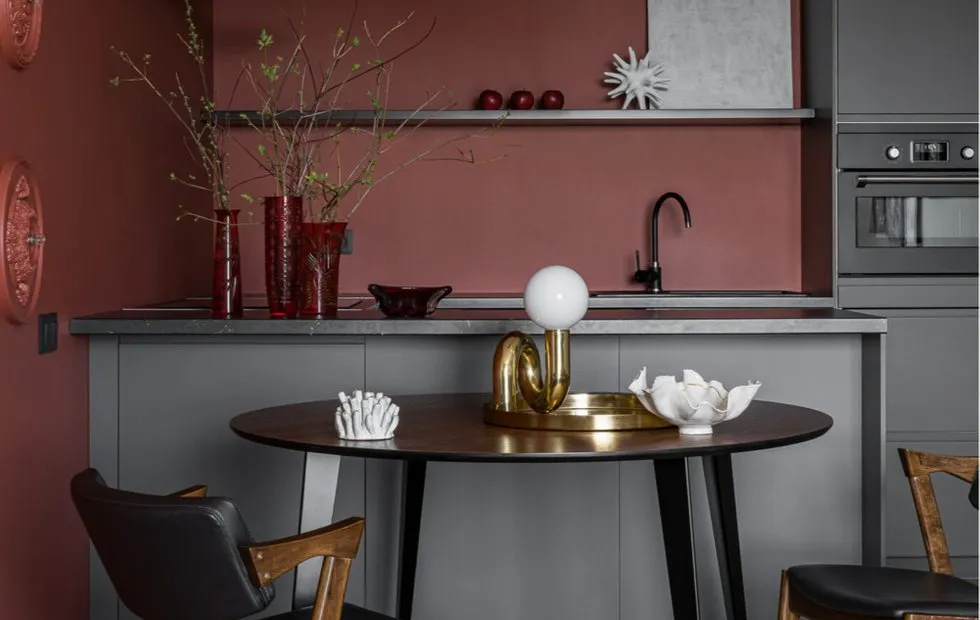 Dream Kitchen in Standard Layout: From Design Project to Implementation
Dream Kitchen in Standard Layout: From Design Project to Implementation